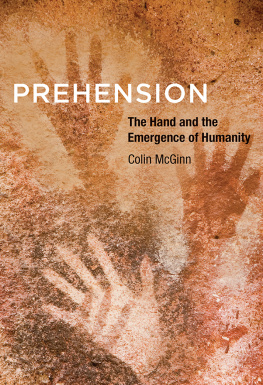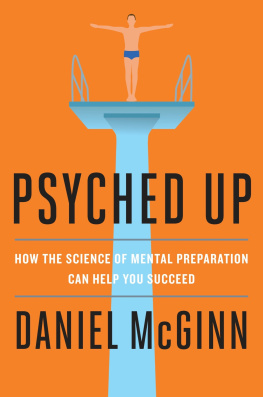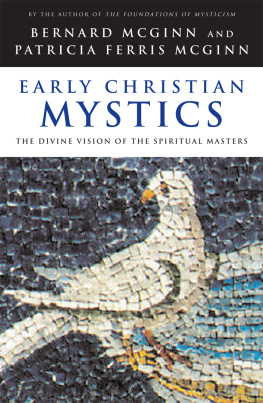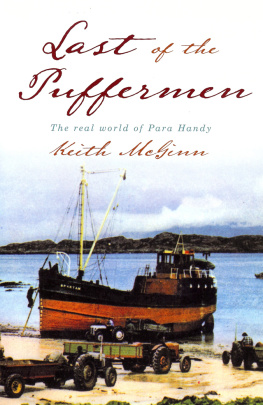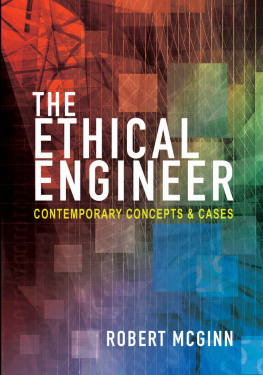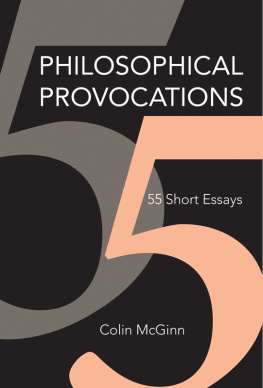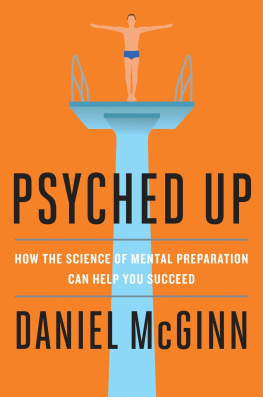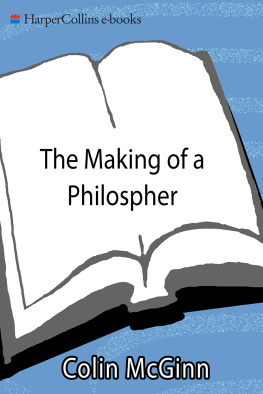Prehension
Prehension
The Hand and the Emergence of Humanity
Colin McGinn
The MIT Press
Cambridge, Massachusetts
London, England
2015 Massachusetts Institute of Technology
All rights reserved. No part of this book may be reproduced in any form by any electronic or mechanical means (including photocopying, recording, or information storage and retrieval) without permission in writing from the publisher.
Library of Congress Cataloging-in-Publication Data
McGinn, Colin, 1950
Prehension : the hand and the emergence of humanity / Colin McGinn.
pages cm.
Includes bibliographical references and index.
ISBN 978-0-262-02932-2 (hardcover : alk. paper)
ISBN 978-0-262-33105-0 (retail e-book)
1. Human evolution. 2. HandEvolution. I. Title.
GN281.M395 2015
599.938dc23
2014049819
10 9 8 7 6 5 4 3 2 1
Preface
I expect this book to be controversial. Of the six readers who reviewed it for the MIT Press, half hated it and half were enthusiastic. The former group consisted of people with a scientific background, the latter group of philosophers. It seems reasonable to predict a similar division (not to say divisiveness) among readers going forward. I dont think this in itself is a bad thing. The book is certainly quirky, speculative, and unorthodox. As they say, it pushes the envelope. I give my imagination a freer rein than usualtoo much for some people, perhaps.
I am not an expert in human evolution or anatomy or archaeology. I have never even touched a human fossil. My knowledge of these fields is strictly that of a layman. What I have done is combine an amateur knowledge of the science with a philosophical slant (in which I do claim some expertise). I keep the science basic and general, though I hope not nave. I use the science as a springboard for speculation. This is certainly not a textbook on human evolution or hand physiology. It is an essay in philosophical anthropologygeneral reflections on the nature of humankind from an evolutionary perspective.
I have pitched it at roughly the level of Richard Dawkinss The Selfish Gene. That book seeks to conceptualize, organize, and dramatize the scientific facts, and is philosophical to that degree. It is also written for the general reader, not the specialist (though it is certainly of interest to a specialist). I have attempted something similar here, though my efforts are a pale shadow of that brilliant book. This book is directed to general readers and philosophers (though scientists more given to speculation might get something out of it). My procedure tends to be rational reconstruction: seeing how things might have been, seeing what is intelligible. Empirical verification is another matter, a very difficult one given the distances of time and lack of concrete evidence. Yes, I am telling stories, though stories rooted in science, and intended seriously.
The human hand plays a central role in the story I tell. One of my aims here is to make us think about something we tend to take for granted: the importance of the hand in nearly all of our endeavors. I even wax a bit poetic about it in places. I approach the hand from multiple directionsanatomically, functionally, emotionally, cognitively, artistically, and philosophically. This is, in part, a hymn to the hand. Touching, not seeing, gripping, not witnessing: hence my title. This perspective is by no means original to me: many thinkers have recognized the importance of the hand and have written eloquently about it. I am simply continuing that tradition, adding a point here and there.
Human evolution is still shrouded in mystery in many ways, and there may even be limits to what we can expect to explain. Still, a picture emerges that is both chastening and upliftinga possible way things could have been, and may actually have been. I certainly dont claim to have the full picture. But even the sketch is worth making, with all due modesty. What I seek to provide here is a philosophers take on the sketch that has emerged since Darwins The Descent of Man. It is a mixture of biology, anthropology, psychology, analytical philosophy, existential philosophy, sheer speculation, and utter amazement. I hope the reader will forgive my sometimes exuberant style and neglect of some of the scientific details (when I think the details dont affect the big picture). This is less a scholarly tome than a dithyramb to the powers of evolution in general and the human hand in particular. And it is not afraid to go out on a limb (an apt metaphor, given the emphasis on trees).
Colin McGinn
September 2014
1 Origins of Humanity
How did the human species arrive at its present form? And how does our species history bear on the nature of this form? The human species, as it now exists, possesses language, rational thought, culture, and a specific affective makeup: but there was a time when our ancestors had none of these thingsor had them only to a very limited degree. How did we get from there to here? How did we become what we so distinctively are, given our early origins? To put it more philosophically: how is Homo sapiens possible?
This question belongs to the field of paleoanthropology, and a rich body of knowledge is associated with it, mainly based on fossils. More broadly, it is a question of evolutionary theory. It has not much attracted the attention of philosophers. This is a book about philosophical paleoanthropology. It attempts to link questions from an empirical science to more strictly philosophical concerns. So it is interdisciplinary. The disciplines linked are anatomy, evolutionary biology, archaeology, linguistics, psychology, cultural studies, and philosophy. I would describe it as a work of evolutionary philosophy (evo-philosophy, for short): in it I philosophize about the science of evolution. If we wish to have a label for this composite field, analogous to the recently minted cognitive science, we might do worse than choose emergence science. We are trying to understand how a certain suite of characteristics emerged in a particular primate species, using all available resources. No other species has evolved these characteristics, at least to the spectacular extent that we have, and it is a puzzle how we could have evolved them. What might explain the remarkable emergence of humanity?
The book therefore deals with an explanatory question: how can we explain the transition from our early apelike ancestors to human beings as we are today? This is a big gap to bridgean explanatory gap. Much of the discussion will concern what sort of explanation is acceptablethat is, with conditions of adequacy. I will lay down various explanatory metaprinciples. We are trying to reconstruct a piece of historyor prehistoryand we need to know what constraints our reconstruction must respect. Naturally, this will involve hypotheses about what did in fact happen in the distant past. But it will also involve inquiries into how things could have happenedwith what philosophers call rational reconstruction. How is it possible to get from one state of nature to another? What sorts of intermediate stages make sense (that is, do not violate well-motivated constraints on evolutionary explanation)? Needless to say, the investigation is highly speculative, given the nature of the case. The form of the explanation consists in identifying and articulating the primary adaptations that powered the transition from early man to contemporary man (for short I will call this the Transition). This is simply the question of how contemporary humans evolved from ancestral stock that had very different characteristics (though also clear similarities). How did humans become the special kind of ape that we are? What accounts for the difference between us and other extant apes? Despite the considerable attention that has been devoted to that question, it is still not well understood.
Next page
